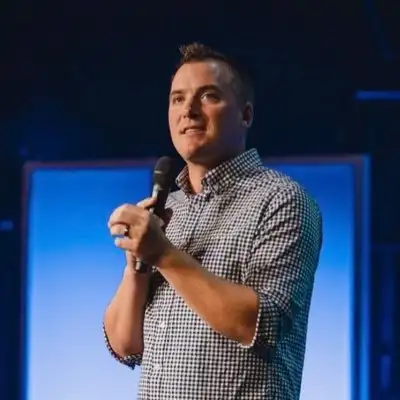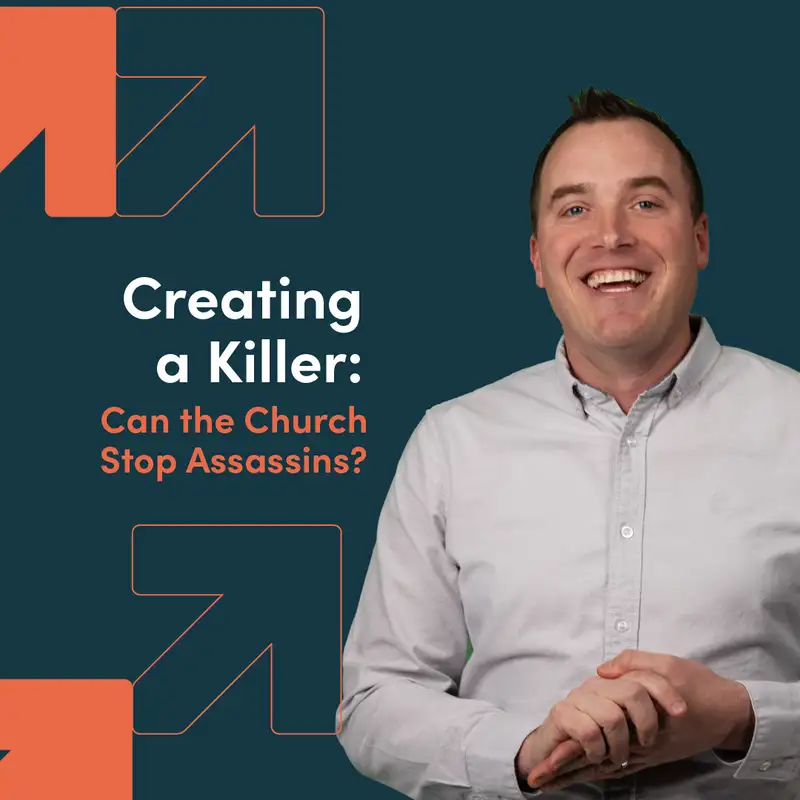Creating a Killer: Can the Church Stop Assassins?
Hello, everyone. Thanks for listening to wake up, look up, a podcast where we connect events happening in real time to the gospel of Jesus Christ. I'm Zach Weirock. And in today's episode, we're talking about creating a killer. We're asking the question, can the church stop assassins?
This is prompted by a deep dive into the life and story of the young man who took a shot at killing president Trump, months ago in Pennsylvania as part of the campaign. This story comes from the New York Times, and it, again, is a profile of Thomas Crooks, the would be assassin, the killer of people in the crowd, and it was in-depth and heartbreaking. It's an incredible story, incredible in a sad way. Thomas Crooks was a brilliant high school student whose SAT score was fifteen thirty. That's out of a possible 1,600.
He was a high achieving engineering student who had just finished two years of community college and was planning on transferring to a four year school to complete an engineering degree. He cherished family moments like cooking together and holiday traditions. But at the same time, he was undergoing his academic pursuits and his family traditions. He was experiencing profound social isolation. In fact, in one heartbreaking moment of the article, he had a class assignment where he had to present something to five adults, and he emailed the professor and said, I have my parents and one other family member.
I don't know five adults. That's how isolated this young man was. He also struggled with mental health. Day going as far back as 2023, began to experience severe depression and anxiety, began talking to himself, showing significant signs of mental decline while he was on the path to radicalization, purchasing a gun, going regularly to the gun range, filling his web history with political articles that were agitating him towards president Trump. Now why do I say all of this?
Because as I was reading this article, what I was struck by is how normal, on the one hand, this young man's life was. I mean, to the outward world, he was just an engineering college student, a bright, shy, quiet kid who was a little bit of a homebody. None of that stood out from pretty normal people. But it also struck me, I guess, because I'm a pastor, at how normally he could have been reached. I I can't help but feel like the church is on the front lines of this issue.
When I say, can the church stop assassins, I I don't mean that we're training security squads for political leaders or even training in paramilitary exercises. What I mean is, should we, could we, how would we have engaged this young man and his family with the gospel? Where he was growing up, there had to be Christians there who could have knocked on a door, who could have made an invitation to church, who could have struck up a conversation on the school campus. Isolation has to become for us a red flag. In this kid's story, everything begins.
His mental decline, his radicalization begins with a young man who was alone, which of course we know the bible says is not good for us. In Psalm sixty eight six, one the psalmist praises the God who places the lonely in families. That's God's heart to bring the lonely in. I can't help but wonder how many Christians saw this kid on the periphery in their classes in high school or in college and did not feel the urge to reach out to him and to pull him in to their group and to their social activity. The church also must know its neighbors and its neighborhoods.
Jesus says in Mark twelve thirty one that we are love our neighbor as ourselves. That's the greatest commandment, which we can't do if we don't cross the street, if we don't go next door, if we're not intentional about building relationships. Who knows what would have happened in this young man's life if someone had done that? Of course, the church must also understand that we need to be a refuge for those struggling with mental and emotional health. Jesus said it this way, come to me all you who are weary, and I will give you rest.
That's Matthew 11. Well, where does he do that? He does that through his church. Now when I say I wonder why the Christians in this young man's life weren't doing these things, don't take that as judgment. Because, of course, the next step is to say, well, am I doing those things?
Do I come to social gatherings and notice the people on the periphery? Do I come to gatherings and notice who isn't there? Is my heart to go to the outside of a social circle and pull in? Or, really, most days, am I just comfortable to be around the people I know and do the things I know? This is not a question of introversion or extroversion.
This is a question of pursuing life change. This is a question of saving lives, the life of this young man and the lives of those who he killed or tried to kill. Evangelism, neighbor love, breaking down social barriers isn't just the work that Jesus has called us to as an act of love, it is the way you take this story from a would be assassin to an incredible testimony of grace that this young man could have and I wish would have been able to share at a local church. Our work matters. So cross the street, knock on a door, invite someone to a barbecue, love people, you might just save lives.
Hey, thanks for watching this episode of Wake Up Look Up. If you enjoyed it, please help us get the word out by sharing it with someone you think might benefit from it. And while you're here, make sure to subscribe to our YouTube channel to get further content or even download the CCC app where you'll find even more resources to help you grow in your faith and relationship with Jesus Christ.
Creators and Guests


